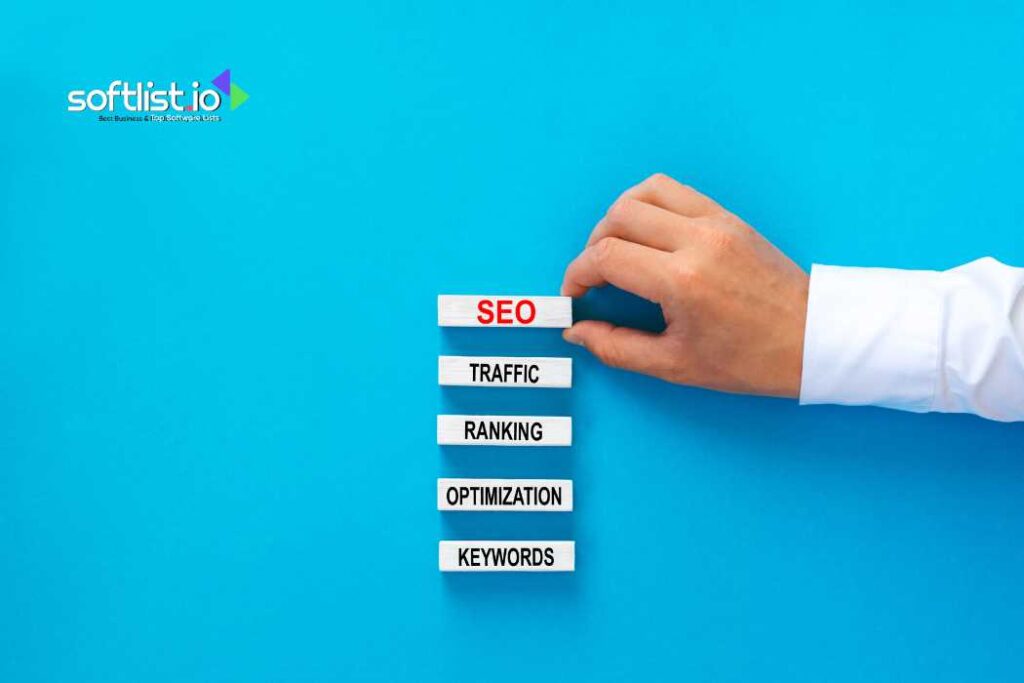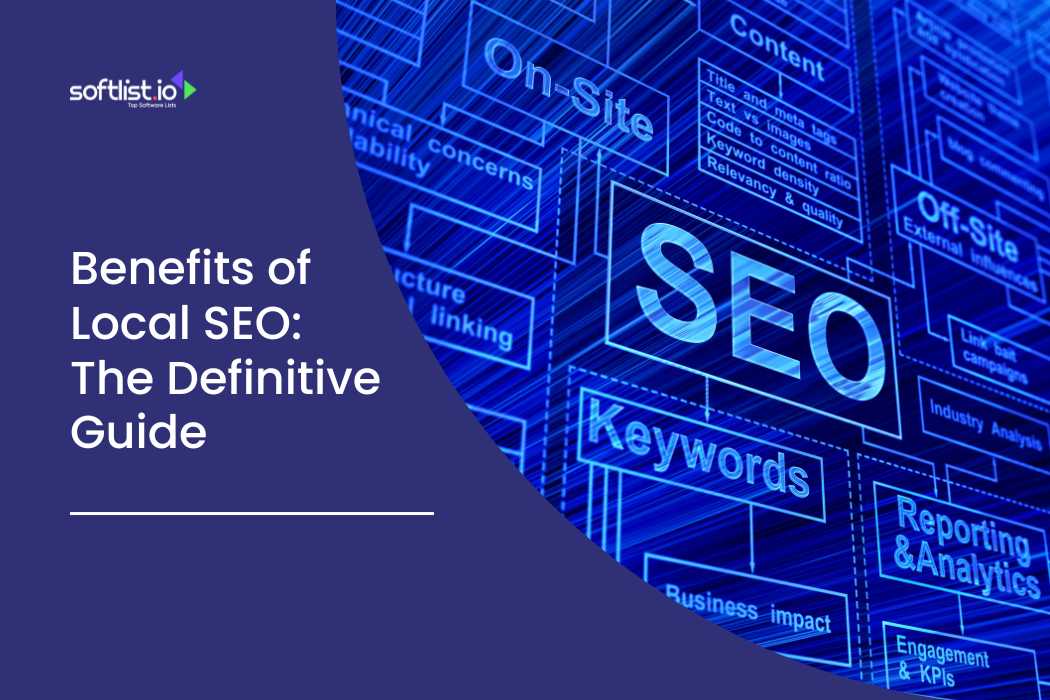Local SEO is what you should do if you want to get more people from your neighborhood. Local SEO is different from traditional SEO in that it focuses on making your website more visible for local searches. This helps you connect with nearby customers more effectively.
This blog will explain the benefits of local SEO and give you useful tips on improving your local search rankings. Getting good at local SEO can help you attract a lot more local customers, whether you run a small business or work in marketing.
Are you ready to start learning? We’ll now examine the exact ways that local SEO can help your business. Read on to find out how local SEO can help you attract more customers.
Key Takeaways
Local SEO is crucial for businesses that rely on local customers. By optimizing for local search engine results, businesses can improve their visibility, attract more local customers, and increase sales. Here are the key takeaways from this comprehensive guide to local SEO:
- Local Search Engine Optimization: Local SEO focuses on improving a business’s visibility in location-based search results, helping to attract local customers.
- Key Local Ranking Factors: Important factors include NAP consistency, local keywords, Google My Business optimization, and local citations.
- On-Page and Off-Page SEO: Effective local SEO strategies involve both on-page SEO, such as optimizing content with local keywords, and off-page SEO, like building local links and citations.
- Tools and Resources: Utilize tools like Google Search Console, Moz Local, and other local SEO tools to track and improve your local SEO efforts.
- Engagement and Updates: Regularly update your Google Business Profile and engage with customer reviews to maintain and improve your SEO rankings.
- Comprehensive Strategy: Combining local SEO with technical SEO and general SEO practices creates a robust strategy that enhances overall search visibility and attracts both local and broader audiences.
By following these best practices and utilizing the right tools, businesses can successfully navigate the process of improving search visibility and achieving higher rankings in local search engine results pages.
This definitive guide provides a solid foundation for anyone new to local SEO or looking to refine their strategies to better serve their local audience.
What is Local Search Optimization?

Source: Canva Pro
Local search optimization, commonly known as local SEO, is the practice of optimizing your online presence to attract more business from relevant local searches. These searches happen on Google and other search engines, often when users search for products or services near them.
Local SEO focuses on improving local rankings and visibility in search engine results, particularly in the local pack, Google Maps, and local organic search results.
Definition and Basics
Local SEO involves several key components to ensure your business stands out in local search results on Google:
- Google My Business (GMB): This is a free tool provided by Google that allows you to manage your online presence across Google Search and Maps. A well-optimized Google Business Profile (formerly known as Google My Business) is critical for SEO success.
- Local Citations: These are mentions of your business name, address, and phone number (NAP) on other websites, including business directories and social media platforms. Consistent and accurate citations help improve local search rankings.
- Local Keywords: Using keywords that reflect local intent is crucial. For example, “coffee shop in Brooklyn” is a local keyword that helps attract local customers searching for coffee shops in Brooklyn.
How Local SEO Works
Understanding how this SEO works involves knowing how search engines like Google use local search algorithms to deliver relevant results. Here’s a breakdown:
- Local Search Algorithms: Google’s local search algorithms consider factors such as the relevance of your business to the query, the distance from the searcher, and the prominence of your business in the local area.
- Proximity and Relevance: These are major ranking factors in local search. Proximity refers to how close your business is to the searcher, while relevance indicates how well your business matches the search query.
- Prominence: This includes how well-known and respected your business is in the local area, often influenced by online reviews, local citations, and links.
Why is Local SEO Important?
Source: Canva Pro
Local SEO is vital for any business that wants to reach local customers. It helps improve search visibility, attract more foot traffic, and ultimately increase sales and revenue.
Increased Visibility
Local searches often lead to higher visibility for local businesses. When customers search for local products or services, SEO helps your business appear in the local pack, map listings, and organic search results, making it easier for potential customers to find you.
- Local Searches: A significant percentage of all Google searches have local intent, meaning users are looking for businesses nearby.
- Local Pack: Appearing in the local pack (the top three local business listings) increases visibility significantly as it appears prominently on the search results page.
- Google Map Listings: Being listed on Google Maps helps local customers find your physical location and get directions, further driving foot traffic.
Higher Conversion Rates
Local SEO not only increases visibility but also boosts conversion rates. Customers searching for local services often have high purchase intent, making them more likely to convert into paying customers.
- Local Intent: Searches with local intent typically result in higher conversion rates as users are often ready to make a purchase.
- Customer Trust: Positive reviews on your Google Business Profile and other local listings build trust and credibility, encouraging more customers to choose your business.
What are Local SEO and Technical SEO?

Source: Canva Pro
Local SEO and technical SEO are both crucial parts of a comprehensive SEO strategy, but they focus on different aspects of optimization.
Differences and Similarities
- Local SEO Focus: SEO targets optimizing your online presence to attract business from local searches. This involves optimizing your Google Business Profile, managing local citations, and using local keywords.
- Technical SEO Focus: Technical SEO involves optimizing the backend elements of your website to improve its overall performance and search engine rankings. This includes improving site speed, mobile-friendliness, and crawlability.
Despite their different focuses, local SEO and technical SEO share some similarities:
- Improving Search Visibility: Both aim to improve your search visibility and ranking on Google and other search engines.
- Optimization: Both require ongoing optimization to maintain and improve rankings. This includes updating content, monitoring performance, and making necessary adjustments.
Integration of Both
Combining local SEO and technical SEO can significantly enhance your overall SEO strategy and results.
- Synergy: A technically sound website provides a strong foundation for SEO efforts. Ensuring your website is fast, mobile-friendly, and easy to navigate improves the user experience and helps Google crawl and index your site more effectively.
- Case Study: Consider a local restaurant that improved its local rankings by optimizing its Google Business Profile and fixing technical issues on its website. This combination led to better local search visibility and more foot traffic.
How is Local SEO Different from SEO?

Source: Canva Pro
Local SEO and broader SEO (Search Engine Optimization) share many techniques but target different audiences and employ distinct strategies.
Target Audience
- Local SEO: Targets customers in a specific geographic area. The goal is to attract local customers searching for products or services nearby.
- Traditional SEO: Targets a broader, often global, audience. The focus is on ranking highly in search results for general keywords without geographic qualifiers.
Strategies and Techniques
- Local Citations: Local SEO heavily relies on local citations and business directories to boost local search rankings. Ensuring NAP consistency across all platforms is crucial.
- Content and Keywords: Local SEO involves optimizing content with local keywords and creating location-specific pages. Traditional SEO focuses on broader keywords and high-quality content that appeals to a wider audience.
Understanding these differences can help you tailor your SEO strategy to meet your specific business needs and goals. Local SEO can drive local traffic and conversions, while broader SEO can increase overall brand visibility and reach.
By integrating both local and traditional SEO strategies, businesses can maximize their online presence and attract both local and global customers, leading to greater overall success.
How is Local SEO Different from SEO?
Local SEO and general SEO share many similarities but also have distinct differences that cater to specific needs. Understanding these differences can help businesses tailor their strategies for better results.
Target Audience
Local SEO specifically targets customers within a geographic area. It aims to attract local customers searching for products and services nearby, while general SEO targets a broader audience, often without geographical limitations.
- Local Audience: Local SEO focuses on attracting customers who are physically close to the business. This is particularly important for businesses like restaurants, local service providers, and retail stores.
- Global Audience: General SEO targets a wider, often global audience. It focuses on ranking higher on organic search results for keywords that might not have a geographical qualifier.
Strategies and Techniques
Local SEO involves unique strategies that differentiate it from general SEO. These strategies are designed to improve a business’s visibility in location-based search results.
- Local Citations: One of the critical local SEO ranking factors is ensuring that the business’s name, address, and phone number (NAP) are consistently listed across various local business directories and local sites. This consistency helps improve local rankings.
- Local Keywords: Using different local keywords within content helps to attract a local audience. For example, a query with local intent, like “best pizza in Chicago,” targets users searching for local results.
- Google My Business (GMB): Optimizing the Google Business Profile, including accurate business information, regular updates, and engaging with reviews, is crucial for appearing in the local map pack and improving search engine results pages (SERPs) for local queries.
What are Local SEO Strategies?
Effective local SEO strategies are essential for improving a business’s visibility and attracting local customers. These strategies involve a combination of on-page and off-page SEO tactics.
On-Page Local SEO
On-page SEO is the process of optimizing individual web pages to rank higher in organic search results and earn more relevant traffic.
- Local Keywords: Incorporate local keywords naturally into your website content, meta descriptions, and title tags. This helps search engines understand your business’s location and relevance to local searches.
- NAP Consistency: Ensure that your business’s name, address, and phone number are consistent across your website and other online platforms. This consistency is a key local ranking factor.
- Content for Search: Create location-specific content that addresses local interests and queries. This could include blog posts about local events, customer testimonials, and service area pages.
Off-Page Local SEO
Off-page SEO involves activities outside of your website that influence your rankings within local search engine results.
- Google My Business: Optimize your Google Business Profile by providing comprehensive information about your business, such as hours of operation, contact details, and photos. Regularly update your listing and engage with customer reviews to boost your local search engine optimization efforts.
- Local Link Building: Obtain backlinks from local sites and local business directories. These local links signal to search engines that your business is relevant to the local area, helping to improve your local SEO rankings.
- Local Citations: Ensure your business is listed accurately in local business directories such as Yelp, Moz Local, and other relevant local results. This enhances your business’s visibility in location-based search results.
Final Thoughts
Local SEO is an essential strategy for businesses aiming to attract customers in their local area. By focusing on local SEO basics, you can significantly improve your business’s visibility in local search results. Optimizing your Google Business Profile, ensuring NAP consistency, and using local keywords are critical components.
Utilizing tools like Google Search Console, which is a free resource, can help track and enhance your local SEO efforts. Incorporating both on-page and off-page optimization techniques ensures a comprehensive approach to improving your organic ranking.
This complete guide provides the SEO best practices and local SEO tips you need to succeed in local SERPs. Consistently applying these strategies will help your business rank higher in organic search results and attract more local customers.
Streamline your SEO efforts. Explore Softlist’s ‘Automation Software‘ category for tools that automate your SEO processes and save you time.
Don’t miss out on exclusive savings. Check out Softlist’s ‘Deals and Offers‘ page for incredible discounts and special promotions, and read our ‘Top Product Reviews’ to find your best match!
FAQs
What is Local SEO, and Why is it Important?
Local SEO focuses on optimizing your online presence to attract more business from relevant local searches. It is important because it helps improve your business’s visibility in local search results, making it easier for potential customers to find you.
How Does Google My Business Impact Local SEO?
Google My Business is crucial for local SEO as it enhances your visibility in local search results and Google Maps. An optimized profile with accurate information and regular updates helps improve your local ranking.
What are Some Local SEO Tips for Beginners?
Beginners should start with optimizing their Google Business Profile, ensuring NAP consistency, and using local keywords in their content. Engaging with customer reviews and building local citations are also important.
How Can I Improve My Organic Ranking with Local SEO?
Improving organic ranking with local SEO involves both on-page and off-page optimization. This includes using local keywords, creating location-specific content, and obtaining backlinks from local sites.
Why Should Businesses Focus on Local SEO?
Businesses should focus on local SEO because it drives local customers to their physical locations, increasing foot traffic and sales. It is particularly beneficial for local service providers and retail businesses looking to improve their visibility in local search results.







